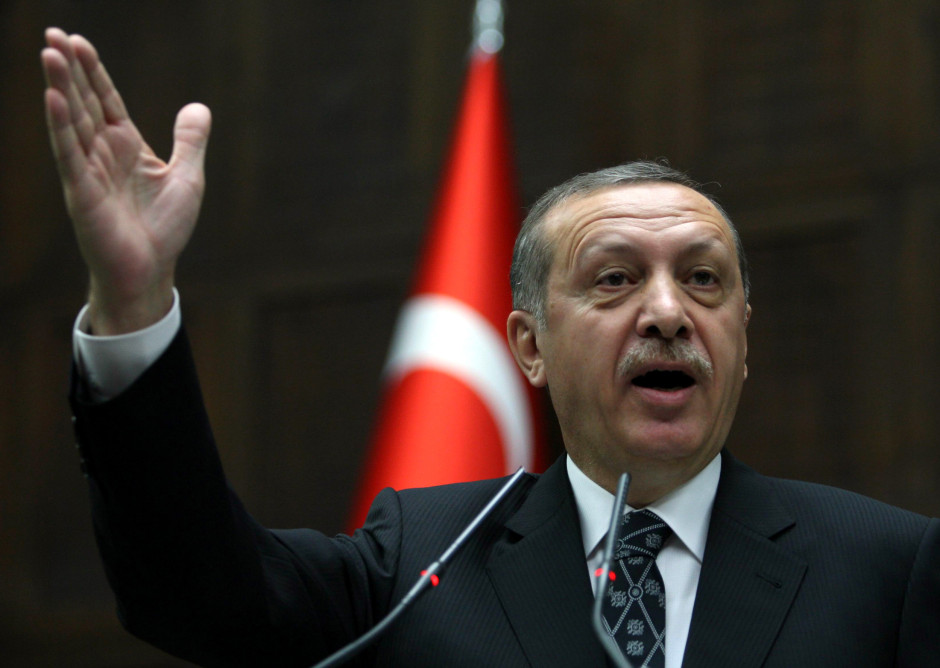Israel’s strained relationship with Turkey has grown considerably colder since Israel and Hamas went to war 11 days ago.
After the Israeli armed forces launched Operation Protective Edge, Turkey urged Israel to immediately halt its offensive, warning it would jeopardize ongoing efforts to normalize bilateral ties. With Turkey’s plea having fallen on deaf ears, Turkish Prime Minister Recep Tayyip Erdogan, presenting himself as the champion of the Palestinians, declared on July 15, “The Israeli state must know that it is out of the question to normalize our relations if those massacres continue.”
Erdogan, whose Islamic-rooted Justice and Development Party has assiduously courted Hamas, added, “Israel is continuing to carry out state terrorism in the region.”
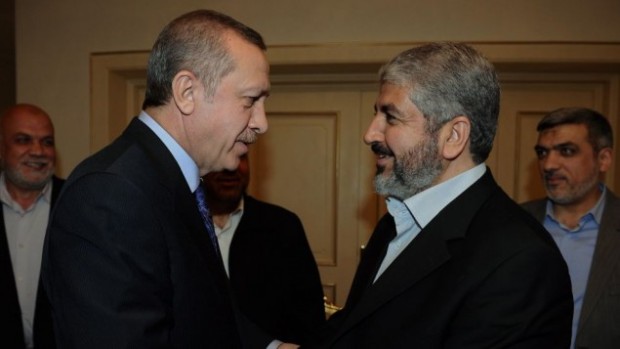
On July 17, just hours before Israel invaded the Gaza Strip, Erdogan issued yet another blistering attack on Israel. “This is not the first time we have been confronted by such situations,” he told a meeting of Islamic scholars in Istanbul to mark the Muslim holiday of Ramadan. “Since (the creation of the state of Israel) in 1948, we have been witnessing this attempt at systematic genocide every day and every month.”
Two days later, in his most intemperate outburst, Erdogan accused Israel of “barbarism that surpasses Hitler.”
Erdogan’s verbal barrages — which prompted hundreds of pro-Palestinian Turkish protesters to assault the Israeli consulate in Istanbul and the residence of Israel’s ambassador in Ankara — remind observers of his bitter denunciations of Israel following its invasion of Gaza in 2009.
By all accounts, he was angered not only by the punishment Israel inflicted on the Palestinians. He also felt betrayed by Ehud Olmert, the then prime minister of Israel who had been his guest in Ankara in December 2008. Olmert left Turkey without informing Erdogan that an Israeli invasion of Gaza was in the works, placing Erdogan in an rather embarrassing position in the eyes of his fellow Muslims.
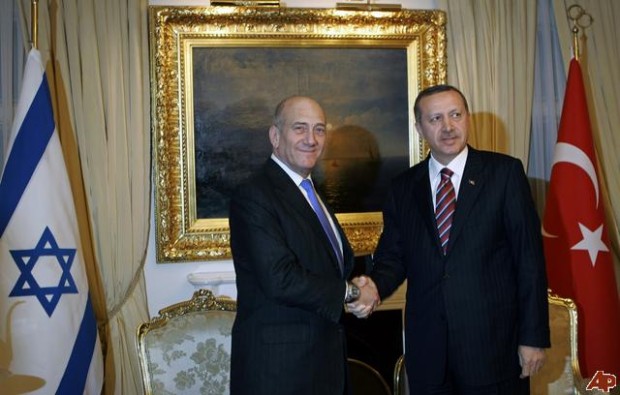
Erdogan’s latest broadsides against Israel have upended current diplomatic efforts by Turkey and Israel to patch up an acrimonious four-year-old feud, which broke out after a deadly incident on the high seas.
On May 31, 2010, Israeli commandos killed eight Turks and one Turkish American aboard the Mavi Marmara, a Turkish ship in a convoy of six vessels attempting to break Israel’s naval blockade of the Gaza Strip and bring vital supplies to the Palestinians there.
Israel imposed the siege after Hamas — a militant Islamic organization that rejects Israel’s existence and calls for its destruction — seized control of Gaza from the mainstream Fatah movement, which is headed by Palestinian Authority President Mahmoud Abbas.
Hillary Clinton, the former U.S. secretary of state, writes in her new book, Hard Choices, that the confrontation almost sparked hostilities between Israel and Turkey, the first Muslim nation to recognize the Jewish state. According to Clinton, Turkish Foreign Minister Ahmet Davutoglu “threatened that Turkey might declare war on Israel.”
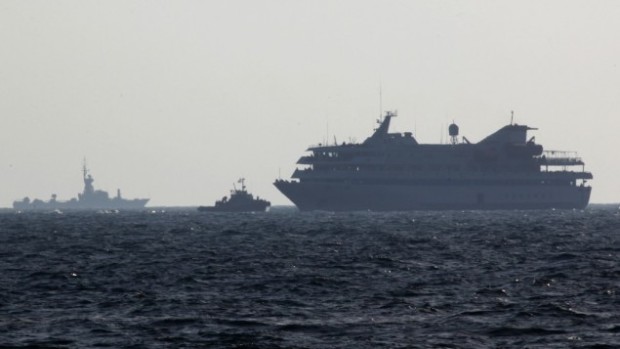
In the same vein, the Turkish newspaper Haberturk reports that Turkey had considered sending warships to the Mediterranean Sea to escort the Mavi Marmara, the largest ship in a flotilla dispatched to Gaza by the Turkish relief foundation IHH. The Turkish navy was reportedly ready to take on the assignment, but warned Erdogan of the possible consequences — a clash with Israel. As a result, Erdogan abandoned the idea of sending Turkish naval vessels to accompany the flotilla to Gaza.
Erdogan, however, demanded that Israel issue a prompt and formal apology, pay compensation to the families of the nine victims and lift the siege of Gaza.
Israel summarily rejected these demands, prompting Turkey to withdraw its ambassador in Tel Aviv, suspend military cooperation agreements and expel Israel’s ambassador in Ankara.
Before this meltdown occurred, Israel’s deputy foreign minister, Danny Ayalon, deliberately insulted Turkey’s ambassador to Israel, while Erdogan and Israel’s president, Shimon Peres, engaged in a verbal altercation at an economic form in Davos, Switzerland, thereby adding two more layers of anger and mistrust between the two countries.
In March 2013, following an official visit to Israel, U.S. President Barack Obama broke the impasse. He phoned Erdogan and then put Israeli Prime Minister Benjamin Netanyahu on the line. Netanyahu, who had been loath to apologize, expressed regret for Turkey’s losses on behalf of the Israeli government. Erdogan accepted his apology, and shortly afterwards, Israeli and Turkish diplomats met to discuss the issues at hand.
Around this time, Israeli Defence Minister Moshe Yaalon told reporters that Israel had lent its approval to a Turkish project to construct a hospital in Gaza. He said that Israel would permit Turkey to send building materials and electrical and communication equipment to Gaza through an Israeli border crossing.
Israel’s negotiations with Turkey were long and arduous, but last April, Erdogan disclosed that Turkey and Israel had agreed on a compensation package and were now moving toward a process of normalization that might well be completed “in a matter of weeks.”
Using a Turkish expression to banish the prospect of bad luck interfering with Turkey’s growing rapprochement with Israel, he said, “I hope that another black cat will not walk by.”
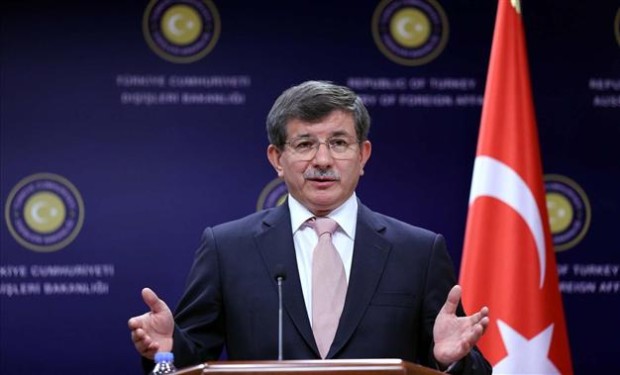
Striking an upbeat note as well, Davutoglu told journalists on May 8 that Turkey and Israel had reached “a certain level” in talks and were overcoming their problems. But adding a deal-breaking caveat, he warned that Turkey would not agree to full normalization unless Israel lifted “restrictions on the whole of Palestine, including Gaza.”
Abut a week later, the Times of Israel, an online publication, reported that a normalization pact could be signed as soon as Netanyahu returned from a state visit to Japan.
But as the Times of Israel ominously pointed out, there was a fly in the ointment: “Top officials in Ankara (have) repeatedly insisted that lifting the (Gaza) blockade is a key condition that needs to be fulfilled before ties can be normalized.”
Wary of Hamas’ intentions, Israel refused to accede to this demand.
By then, two more problems had surfaced.
Avigdor Liberman, who had staunchly opposed Turkey’s demands, had returned to the Israeli cabinet as foreign minister. And as usual, he was in no mood to appease Turkey.
A Turkish court had ordered the arrest of four high-ranking Israeli military officers who had played a key role in the storming of the Mavi Marmara: Gabi Ashkenazi, the former chief of staff; Eliezer Marom, the former commander of the navy; Amos Yadlin, the former chief of military intelligence, and Avishai Levy, the former head of air force intelligence.
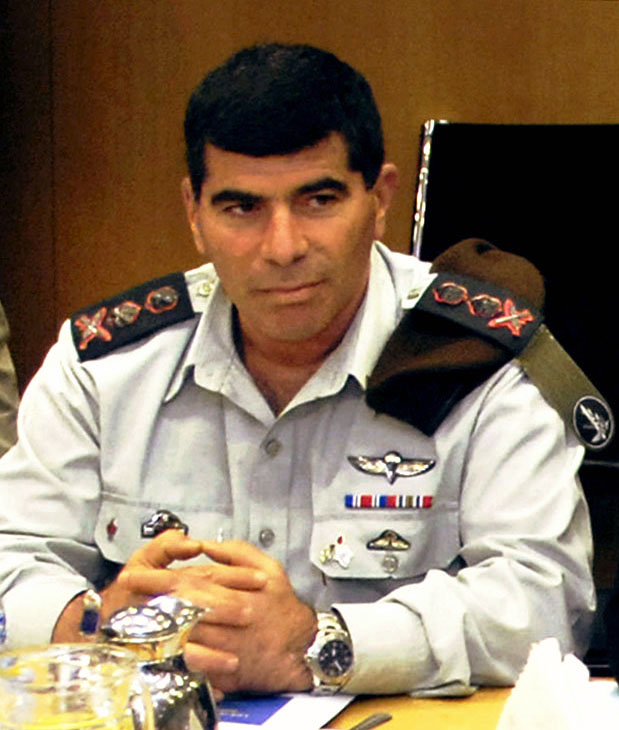
Now that Israel has invaded Gaza, it’s likely that Erdogan, who has a history of attacking Israel, will step up his harsh critique of Israeli policy. By doing so, he will set back efforts to normalize Turkey’s political relations with Israel. Already, in light of the street violence directed against Israeli diplomatic facilities in Istanbul and Ankara, Israel has pulled out some of the families of its diplomats in Turkey.
Israel’s lingering dispute with Turkey, though serious, hasn’t affected two-way trade. Last year, it reached $4.8 billion, compared to $3.4 billion in 2008, when Israel’s bilateral relations with Turkey were at their peak. This year’s figures are running ahead of 2013.
Money talks, even if Erdogan and Netanyahu aren’t talking and normalization is off the table.
